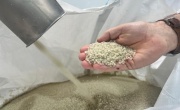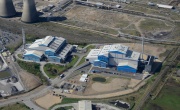Biobased and Biodegradable Industries Association to launch
A new trade association for the UK bioeconomy, will officially launch next month, it has been announced.

The Biobased and Biodegradable Industries Association (BBIA), formerly referred to as the British Association of Biobased and Biodegradable Chemicals (BABBC), includes BASF, Biobag, Biotec, EuroPackaging, Fuchs, Innovia, Novamont and Sinvestec amongst its founding members.
Open to 'anybody who is involved in speciality chemicals and commodity chemicals, composites, plastics, polymers, or even construction materials', the BBIA has been established to represent the ‘circular bioeconomy sector’ in the UK, which the group says is ‘currently under-represented in public and political debates in the UK’.
It will:
- promote the production and use of bio-based and biodegradable materials;
- encourage investment opportunities in the UK bioeconomy;
- develop scientific analysis of environmental and economic impacts of the bioeconomy;
- intervene on matters related to waste management, soil, air and water quality; and
- define nationally and internationally recognised standards and certification programmes for the bioeconomy.
The trade body will become operative shortly after the General Election in May, and will present its first report in ‘early summer’. This will focus on the potential financial and employment benefits of using compostable materials in the UK. It is hoped that this report will work as a ‘roadmap’ for the new government.
BBIA’s seven-member board will meet on 24 April to define the first steps of the association and elect a President, Vice President, Treasurer, Director and Technical Director.
‘Circular bioeconomy may play an increasingly important role in boosting the UK economy’
BBIA founder David Newman, President of the International Solid Waste Association (ISWA) and Secretary General of the Italian Bioplastics Association, commented: “We will immediately engage policy-makers, civil servants and the public to help establish a more competitive, innovative and sustainable Britain.
“Over the next decade, the circular bioeconomy may play an increasingly important role in boosting the UK economy by revitalising rural areas and obsolete industrialised sites while providing more growth and jobs.”
Bioeconomy background
According to the House of Lords Science and Technology Committee’s report ‘Waste or resource? Stimulating a bioeconomy’, the potential economic market value of the bioeconomy in the UK is around £100 billion. The bioeconomy is defined as ‘the use of biological feedstocks to generate economic outputs in the form of energy, materials or chemicals’, and it is estimated that around £6 billion of the £60 billion UK chemical industry could be replaced with renewable biochemicals (such as those produced from waste materials) if the bioeconomy were further developed.
Other potential benefits of developing a bioeconomy include: boosting sustainable practices in business; creating jobs; making use of brownfield sites (through facility construction); and enabling the UK to export new products that are currently imported (for example, compostable packaging).
However, the committee concluded that although there are ‘promising signs that a waste-based bioeconomy could deliver substantial economic returns and support a considerable number of jobs… there is clearly uncertainty in these predictions’. Consequently, it argued that ‘government, industry and academia should take steps to further characterise this opportunity and ensure its full potential is realised’.
Find out more about how the BBIA was set up.







